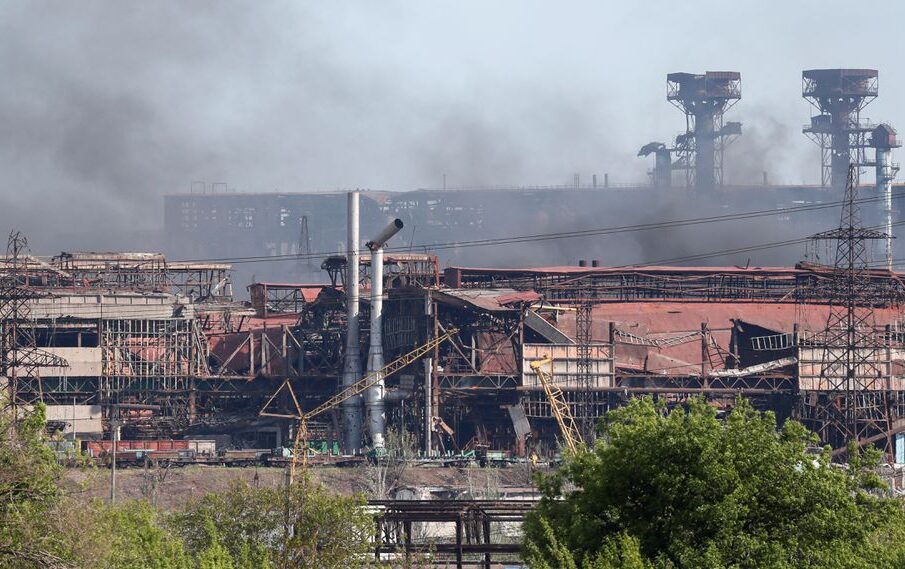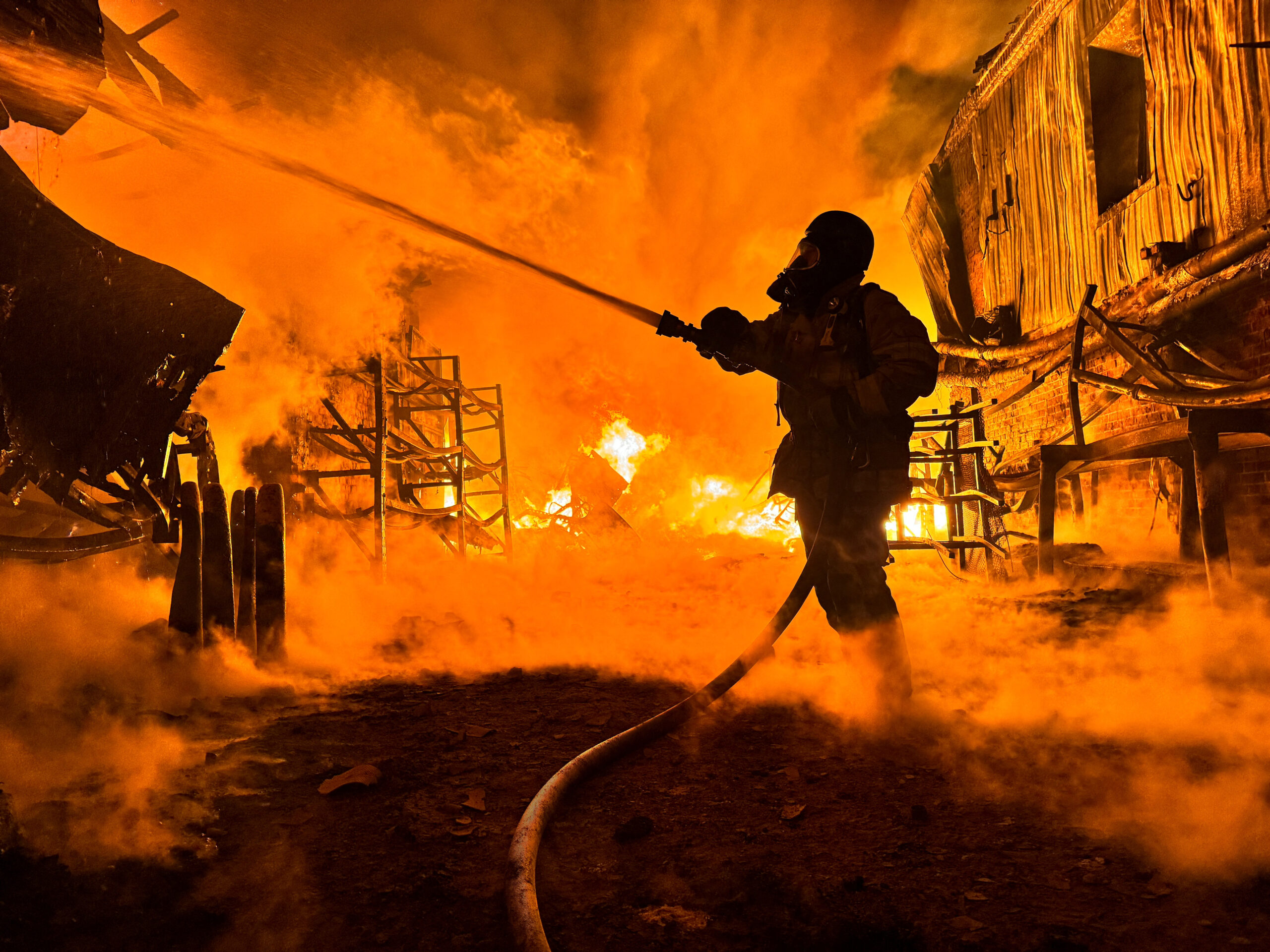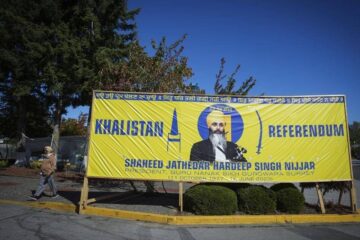Russia advances in Ukraine’s Donbas as Mariupol steelworks siege ends
 A view shows Azovstal steel mill during Ukraine-Russia conflict in the southern port city of Mariupol, Ukraine May 20, 2022. REUTERS/Alexander Ermochenko
A view shows Azovstal steel mill during Ukraine-Russia conflict in the southern port city of Mariupol, Ukraine May 20, 2022. REUTERS/Alexander ErmochenkoRussia pressed for control of Ukraine’s Donbas region, claiming victory in the months-long battle for Mariupol’s steel plant and launching a major offensive on the remaining Ukrainian-held territory in the province of Luhansk.
The last Ukrainian forces holed up in Mariupol’s smashed Azovstal steelworks surrendered on Friday, Russia’s defense ministry said. That ended the most destructive siege of the war.
“The territory of the Azovstal metallurgical plant … has been completely liberated,” the ministry said in a statement, adding that 2,439 defenders had surrendered in the past few days, including 531 in the final group.
Hours earlier, Ukrainian President Volodymyr Zelenskiy said the last defenders at the steelworks had been told by Ukraine’s military that they could get out and save their lives. The Ukrainians did not immediately confirm the figures on Azovstal.
Ukraine’s General Staff of Armed Forces did not comment on Russia’s claim in its morning update on Saturday.
Russia also launched what appeared to be a major assault to seize the last remaining Ukrainian-held territory in Luhansk, one of two southeastern Ukrainian provinces Moscow proclaims as independent states.
Serhiy Gaidai, the governor of the Luhansk region, said in a social media post early on Saturday that Russia was trying to destroy the city of Sievierodonetsk, with fighting taking place on the outskirts of the city.
“Shelling continues from morning to the evening and also throughout the night,” Gaidai said in a video post on the Telegram messaging app.
In early hours on Saturday, air raid sirens were going off in much of Ukraine, including in the Kyiv capital region and the southern port of Odesa.
Capturing Luhansk and Donetsk provinces, much of which make up Ukraine’s industrial Donbas region, would allow Moscow to claim a victory after announcing last month that this was now its objective.
Despite losing ground elsewhere in recent weeks, Russian forces have advanced on the Luhansk front.
“This will be the critical next few weeks of the conflict,” said Mathieu Boulegue, an expert at London’s Chatham House think tank. “And it depends on how effective they are at conquering Sievierodonetsk and the lands across it.”
The city of Sievierodonetsk and its twin Lysychansk across the Siverskiy Donets river form the eastern part of a Ukrainian-held pocket that Russia has been trying to overrun since mid-April after failing to capture Kyiv.
Ukraine’s general staff said on Saturday that Russian forces were preparing to try again to cross the river, after a previous attempt earlier this month led to one of the largest battles in the conflict so far.
BATTLE FOR MARIUPOL
The end of the Mariupol siege was an important symbolic moment for Russia, after a series of setbacks since the invasion began on Feb. 24, but it came at the cost of massive destruction.
Zelenskiy said the region had been “completely destroyed” by Russia and proposed a formal deal with the country’s allies to secure Russian compensation for the damage its forces had caused.
Natalia Zarytska, wife of an Azovstal fighter who surrendered, said she had not heard from him since a Telegram message exchange two days ago. She believed he was still alive.
“The situation is really hard and horrible and my husband is on the way from one hell to another hell, from Azovstal steel plant to a prison, to captivity,” Zarytska said in Istanbul, where she and other relatives lobbied Turkey to help save the fighters.
The Red Cross said it had registered hundreds of Ukrainians who surrendered at the plant as prisoners of war and Kyiv says it wants a prisoner swap. Moscow says the prisoners will be treated humanely, but Russian politicians have been quoted as saying some must be tried or even executed.
Russian forces in Ukraine have been driven in recent weeks from the area surrounding Ukraine’s second-largest city, Kharkiv, their fastest retreat since being forced out of the north and the Kyiv region at the end of March.
But they still control a large swathe of the south and east, and the end of fighting in Mariupol means that that territory is now largely unbroken.
In a sign of Russia’s aim to boost its war effort, the parliament in Moscow said it would consider letting Russians over 40 and foreigners over 30 join the military.
The past week has also seen Sweden and Finland apply to join NATO, although Turkey has threatened to block them, accusing the Nordic countries of harbouring Kurdish militants.
Russia’s Gazprom (GAZP.MM) on Saturday halted gas exports to Finland, the Finnish gas system operator said, the latest escalation of an energy payments dispute with Western nations.
SOURCE: REUTERS










